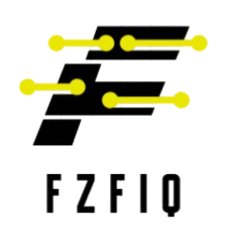AI filmmakers gathered at NFC Lisbon for the AI Film Academy’s inaugural AIFA Awards this week, recognizing the “extraordinary diversity of stories and the radically new visual language of AI.”
The AImagine Award for Best Film went to “Denny the Shark,” created by collaborative duo Ethereal Moon, which is made up of Melody Bossan (aka LeMoon) and Dina Lockamy (aka Ethereal Gwirl).
Bossan said that using AI has revitalized her “faded dream of becoming a filmmaker,” adding that she and Lockamy were “both stay-at-home mothers when we discovered AI art and were immediately hooked.”
Bossan and Lockamy are “a classic example of a huge sector of the world who are excluded from this fast paced, cutthroat industry,” AI Film Academy co-founder Leo Crane told Decrypt. He added that, “We’re trying to prove this idea that the emerging technology opens up the field on a global scale.”
The event also saw the launch of the AI Film Academy, a body aimed at “democratizing the film industry” through AI and blockchain technologies.
“It’s a global institution for the future of film,” said AI Film Academy co-founder Clare Maguire. “We essentially wanted to deliver a message to show how much potential there is in this new technology, so that we can help to stop the fear, and support and encourage positive adoption.”
AI and the film industry
AI has proved to be a divisive topic in the film industry, with battle lines being drawn up between those who embrace the technology and those who argue it threatens artists’ livelihoods and relies on plagiarism.
Negotiations to resolve last year’s actors’ and writers’ strikes hinged on provisions to regulate the use of AI in the film industry, while actors have reported losing jobs to AI-generated performances. There’s been pushback from audiences, too, with the directors of horror film “Late Night With the Devil” forced to defend their use of AI-generated art after the film’s page on review site Letterboxd was flooded with negative comments.
Earlier this month, actor Scarlett Johansson lawyered up, accusing AI firm OpenAI of using a soundalike voice for its GPT-4o model after she’d turned down its requests to use her voice.
Johannson professed to be “shocked, angered and in disbelief” that the firm used a voice “so eerily similar to mine.” The firm withdrew the offending voice, denying that any similarities were intentional.
Others have argued that artists’ fears are overblown. In a recent interview, Netflix co-CEO Ted Sarandos argued that AI is simply another “tool,” likening it to technological advances such as CG animation or home video.
“AI is not going to take your job,” Sarandos said. “The person who uses AI well might take your job.”
Crane acknowledged concerns about AI “taking jobs” and “people being exploited,” but argued that the technology empowers creators outside the traditional system.
“It’s the studios, the big power structures that are controlling AI and exploiting the little person,” Crane said. “But when you look at the finalists, and you look at the filmmakers who were represented here, these are the so-called little people, these are the people operating outside of that system.”
AI technology, he said, is giving them the chance to “really compete with multimillion dollar films in a way that’s just not been possible before.”
Edited by Andrew Hayward
Daily Debrief Newsletter
Start every day with the top news stories right now, plus original features, a podcast, videos and more.
